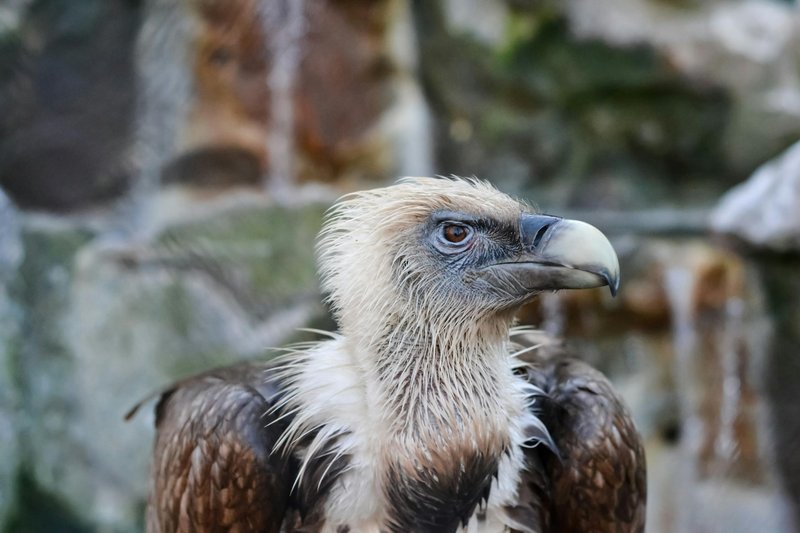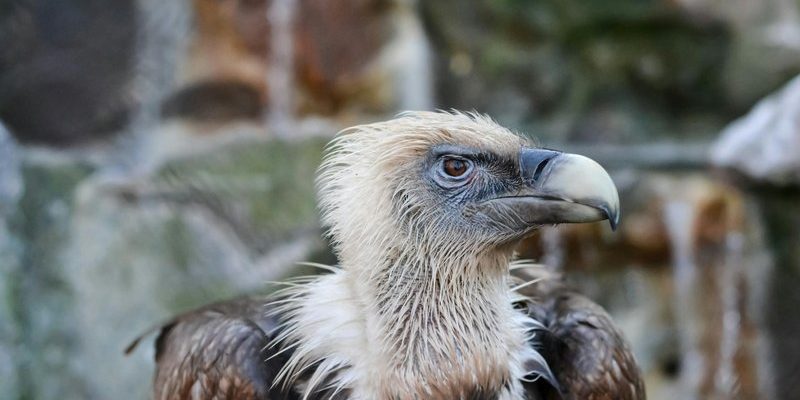
These vultures primarily inhabit rocky cliffs and mountainous regions across Europe and parts of Asia. Their ability to soar high in the sky—to search for food with such precision—is nothing short of impressive. You might be wondering how they manage to survive where food is scarce and the climate can turn harsh in an instant. Well, let me explain their fascinating survival strategies.
Mastering the Skies
Griffon Vultures are gifted flyers. They have a wingspan of up to 9 feet, which is roughly the length of a small car! This enormous wingspan allows them to soar on thermal currents, conserving energy while looking for food. Imagine gliding effortlessly above a vast landscape, using the wind to carry you—a bit like riding a bike downhill without pedaling!
Unlike smaller birds that flap their wings constantly, Griffon Vultures can stay aloft for hours without much exertion. This means they can cover long distances to find food. Given their habitat in remote, rugged areas, this ability is crucial; they need to scout for carcasses over expansive terrains. By using their powerful eyesight, they can spot a potential meal from miles away, helping them to survive when food options are limited.
Diet and Eating Habits
You might think vultures are just scavengers, but there’s more to the story. Griffon Vultures primarily feed on the remains of dead animals, which plays a significant role in maintaining ecological balance. It’s like they’re nature’s recyclers! When a large animal dies, the vultures swoop in to clean up, preventing the spread of disease and helping the environment stay healthy.
Their digestive systems are specially adapted to handle rotting food, which can be quite toxic to other animals. The vulture’s stomach acid is incredibly strong, allowing it to digest bacteria and pathogens that would make most creatures sick. This unique adaptation not only helps them survive in harsh conditions but also makes them incredibly important in their ecosystems as they efficiently eliminate waste.
Weathering the Elements
Living in mountainous regions means Griffon Vultures face a variety of weather conditions. From scorching summer days to freezing winter nights, they’ve got to be tough. These birds have developed a few clever strategies to weather these extremes.
During hot days, you might see them basking in the sun, spreading their wings wide. This behavior not only helps them dry out after rain but also regulates their body temperature—kind of like taking a sunbath to get warm and cozy! In colder months, they can endure the chill thanks to their thick feathers, which provide insulation against freezing temperatures.
In tough storms, Griffon Vultures might hunker down in their nests, which are often built on the cliffs. These nests are usually well-hidden in crevices, providing a safe space to ride out the worst weather. This adaptability is key to their survival and showcases their resilience in the face of varying climates.
Social Behavior and Nesting
Griffon Vultures are social creatures, often found in large groups. Their social behavior doesn’t just make for interesting viewing; it also plays a role in their survival. When they spot a carcass, the sight of many vultures can attract even more birds, making it easier to locate food. Think of it as hosting a big dinner party—once the guests arrive, the food gets devoured quickly!
Nesting is another critical aspect of their social dynamics. Griffon Vultures typically mate for life and return to the same nesting site each year. These nests can be quite elaborate, built from sticks and lined with softer materials. The cliffs provide a natural barrier against predators, ensuring their chicks have a safe start in life. This strong family bond helps ensure the continuation of their species even during tough times.
Conservation Status and Challenges
While Griffon Vultures are incredible survivors, they’re not without their challenges. Habitat loss, poisoning, and hunting have significantly impacted their numbers in recent years. As they scavenge in increasingly fragmented environments, finding food becomes more difficult.
Conservation efforts are underway to protect their habitats and educate local communities about their benefits. You might even find that local wildlife organizations are working to reduce poison use in agriculture, which often harms these magnificent birds. It’s a reminder of how interconnected nature is and how vital it is to protect our wildlife.
Griffon Vultures are a remarkable testament to nature’s ingenuity. Their ability to thrive in harsh environments, from their keen flying skills to their tough digestive systems, shows just how well-adapted they are. These birds don’t just survive; they play an essential role in their ecosystems, cleaning up after nature’s messes and helping to maintain healthy environments.
By understanding their unique behaviors and the challenges they face, we can appreciate the importance of conservation efforts to ensure their survival. So, the next time you see a vulture soaring high above, remember that it’s not just a scavenger but a resilient survivor of nature’s harshest conditions.

